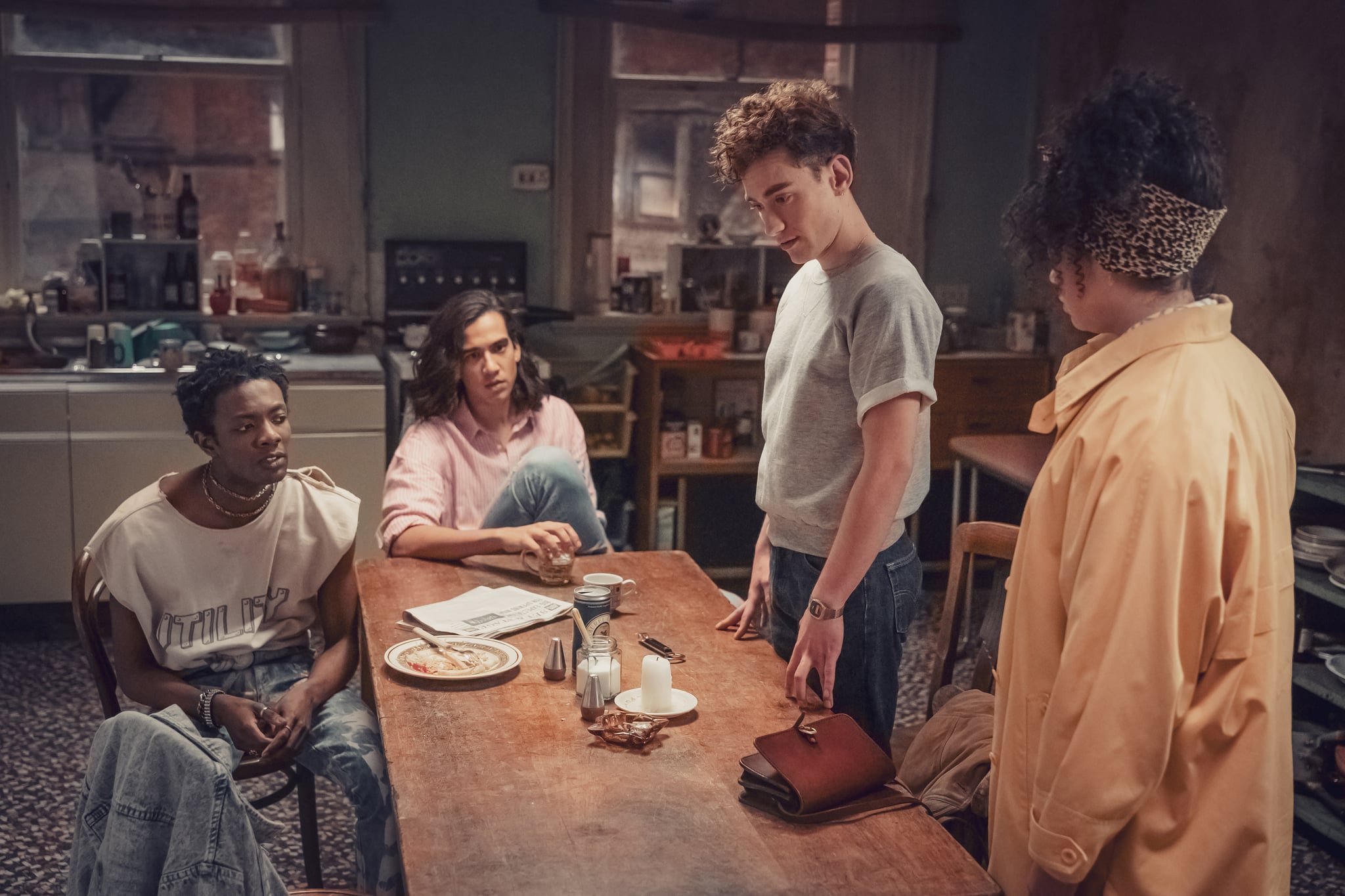
It's a Sin [1], the latest show from multi-award-winning producer Russell T Davies, is a heartbreaking and crucial account of the HIV/AIDS outbreak in the UK in the early 1980s. Starting in 1981, the series follows a group of young gay men — Richie (played by Olly Alexander [2]), Roscoe, Colin, and Ash — who rally together in a student home in London they call the "Pink Palace" as a mysterious disease seems to be mainly targeting gay men. Throughout the five episodes, we watch as each of the main characters faces the disease in their own way, while the mother figure of the group, Jill (Lydia West), along with her mum, struggle to look after them amidst a society filled with fear and little-to-no information about the virus (and not to mention misinformation).
Davies has spoken widely about how It's a Sin is a deeply personal project for him, growing up as a young gay man in the '80s. "I was 18 in 1981," he said, explaining that for him, the disease felt like "it got closer and closer and closer, until it was on your doorstep, until it was taking away people you loved." One of the reasons for creating the show was to keep the memory of his friends who died of AIDS alive. "We're reaching a stage when the parents are going and so the memories are going," Davies told BBC [3]. "That's one of the reasons why this needs telling now. Before it passes into history, while it's still there in memory. Just a nice little chance to preserve it for a moment, hold it there and salute them."
It's a Sin may not be a true story per se, but every aspect of the story is based on real people in Davies life, and the show takes great inspiration from actual events that occurred during the HIV crisis in the '80s.
His Friends Served as Inspiration For Some of the Characters
It turns out, that while majority of the characters aren't based on specific people, one very important member of the cast is. In an interview with Channel 4, Davies touched on the character of Jill, played by Lydia West, and revealed that she was "very specifically inspired by a friend of mine called Jill, who was such an inspiration that I couldn't even change her name when it came to writing a fictional version." If that wasn't enough of an honour, his actual friend, Jill Nalder, plays the fictional part of Jill's mother on screen.
At the end of the series, Jill goes on to volunteer in hospitals, spending time with HIV and AIDS patients, to which Davies revealed "Jill was much more active than me, she was a much more honourable person in that she spent more time on AIDS wards than I ever did, and held the hands of the dying more than I ever did. And I love her for that." The remainder of the cast were loosely based on past experiences, but no-one more so than West's character, someone that Davies recalls as one of the "unsung heroes" of the movement that brought the fear of AIDS into the public eye.
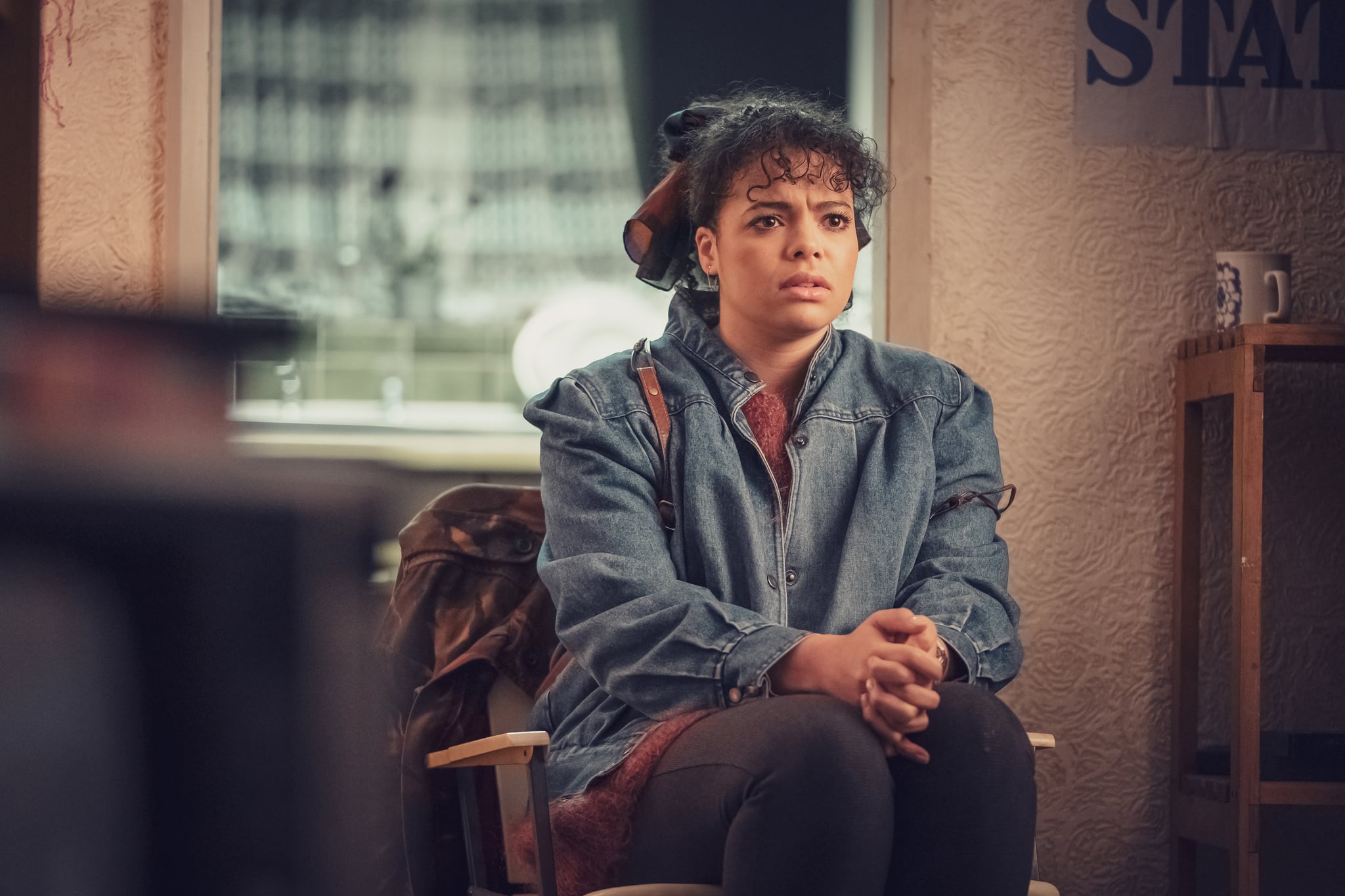
The Manchester Archives Were a Chief Source of Knowledge
In addition to relying on Davies' own personal experiences, the show was heavily researched before it went into production. Davies explained that as a patron of the George House Trust in Manchester [4] — the North West's biggest HIV and AIDS charity — he was able to delve deep into their archives for some of It's A Sin's most pivotal scenes. Earlier episodes of the show feature Lydia West's character volunteering on the phones, talking to those newly diagnosed with HIV. Davies revealed that the charities he worked with still had "the logs of all the transcripts from their phone lines during the 1980s", which he used to inform Jill's experience.
He enlisted the help of friends and experts, speaking to charities and doctors to confirm his facts and share their anecdotes. But as someone who lived through the events themselves, Davies explained that "mainly it was an act of remembering, because I was actually there and I saw those people and knew those people and loved those people. It was time I got around to writing about them", he added.
The Pink Palace Was a Place Davies Hung Out at During University
The students in It's a Sin refer to their creaky London flat as the "Pink Palace", but the name wasn't born out of nothing. Whilst Davies studied English in Worcester College at Oxford university, a number of his friends "went off to become actors, lived in a flat called the Pink Palace, and had parties night and day", he revealed to the BBC [5]. Recalling that "they had more fun", Davies used to disappear on weekends to visit the palace, looking back "40 years later remembering that Pink Palace and loving it."
To Davies and his friends, the Pink Palace symbolised freedom. He explained that "it was about being open and gay, or whatever sexuality you were in that flat", adding that the most important thing was "finding yourself and being absolutely open and loud about it."
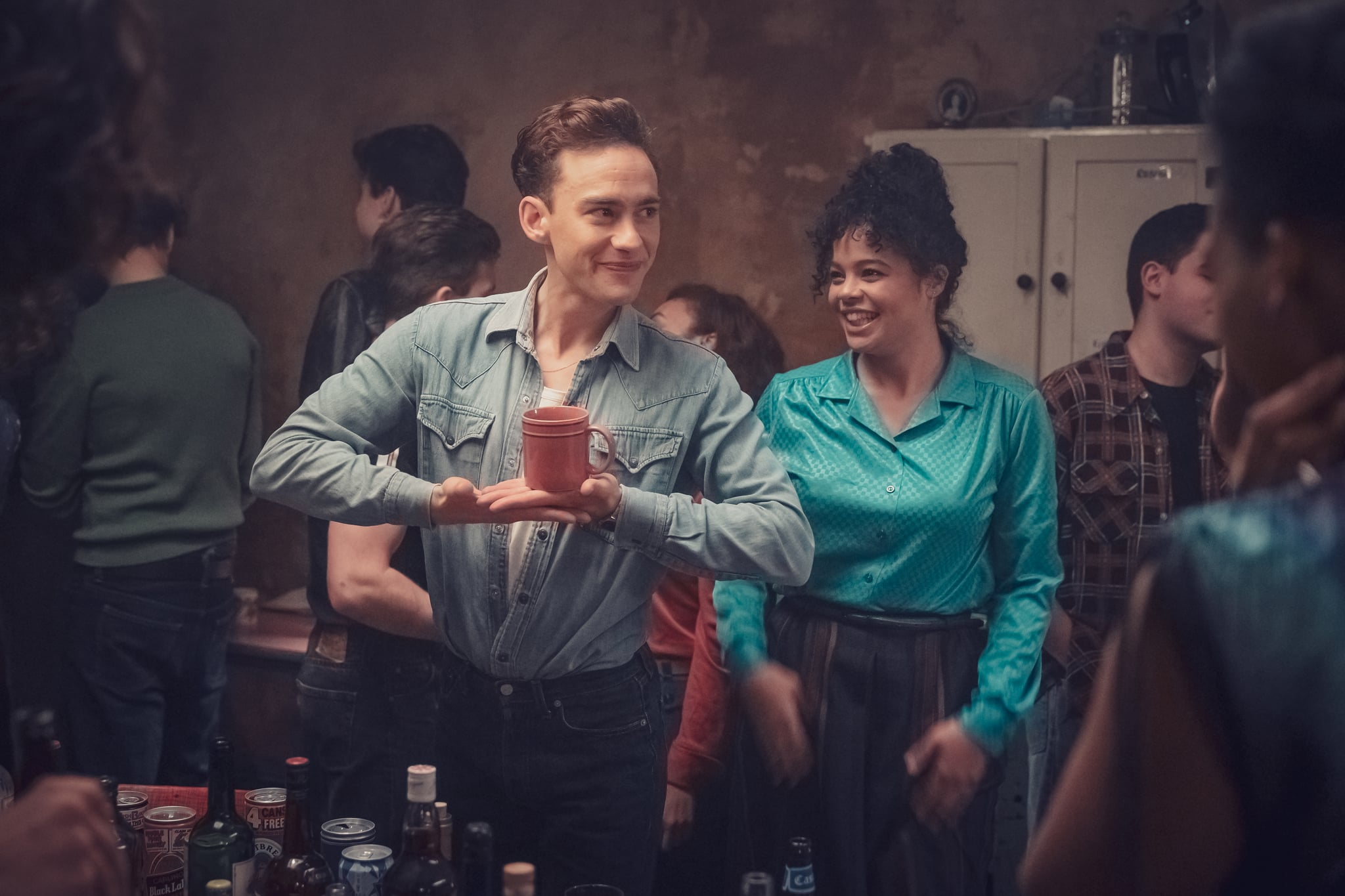
The Misinformation Around the Virus Was Very, Very Real
Much like with the spread of coronavirus today, in its infancy, information about HIV and AIDS was very limited. For men like Davies, coming out at the age of 21 was even more difficult because "there was a virus coming too, so all of us weren't only coming out but also saying, and by the way, I'm not ill", he explained to the Evening Standard [6]. There was a sense of desperation in coming out during that time, with men "promising not to get ill." The problem was that "no one was really sure how you did get ill, at the time", Davies told the magazine.
At the beginning of the HIV/AIDS outbreak, "there was a good 10 years when people were asking, 'can you get it from oral sex?'", Davies continued in the same interview, adding that rumours like you could catch the virus through your eyes, or that any small skin mark meant that you had it, ran rife. For the longest time, even medical professionals had no idea as to how the virus could be contracted, which led to a surge in the unnecessary usage of PPE, quarantining of patients, and even not allowing patients to eat their meals in hospital unless a family member willingly crossed the threshold to bring it to them. Davies told BBC that [7], at the time, gay landlords would kick out tenants trying to share information, "thinking they were trying to scare people, thinking they were trying to stop sex, and thinking it was an anti-gay movement", a true testament to the amount of confusion felt by the community.
Section 28 Was Passed in 1988, and It Was a Terrible Thing
In episode 4, Ash (Nathaniel Crawley), makes an impassioned speech against Section 28 [8], the Thatcher government's cruel and unjust legislation that banned the "promotion" of homosexuality by local authorities and in Britain's schools (for instance, libraries weren't allowed to stock books or films that featured gay and lesbian themes). The clause, unsurprisingly, was met with protests and harsh criticism from the LGBTQI+ community, and is actually the reason Sir Ian McKellen came out publicly so he could voice his opposition. Section 28 was repealed in Scotland on 21 June 2001 and in the rest of the UK on 18 November 2003, but it was still an issue Davies wanted to make sure he addressed in the show, according to an interview he did with AnOther Magazine [9].
"I think it would have been odd to have written a gay drama set in the '80s with no mention of it. But what Ash says in that scene, I have been dying to say for years," he told the magazine. "What a monstrous thing that government did [with Section 28] — it was genuinely wrong . . . It was immoral on every level and took decades to be undone from the legislation. I think it's important to remind people that can happen because we're sitting here with a Tory government with a majority of 80, who are monsters . . . So you can't relax on this stuff and it's not just reminding people as a history lesson. It's reminding us that here, as in America, these rights are hard won and easily lost."
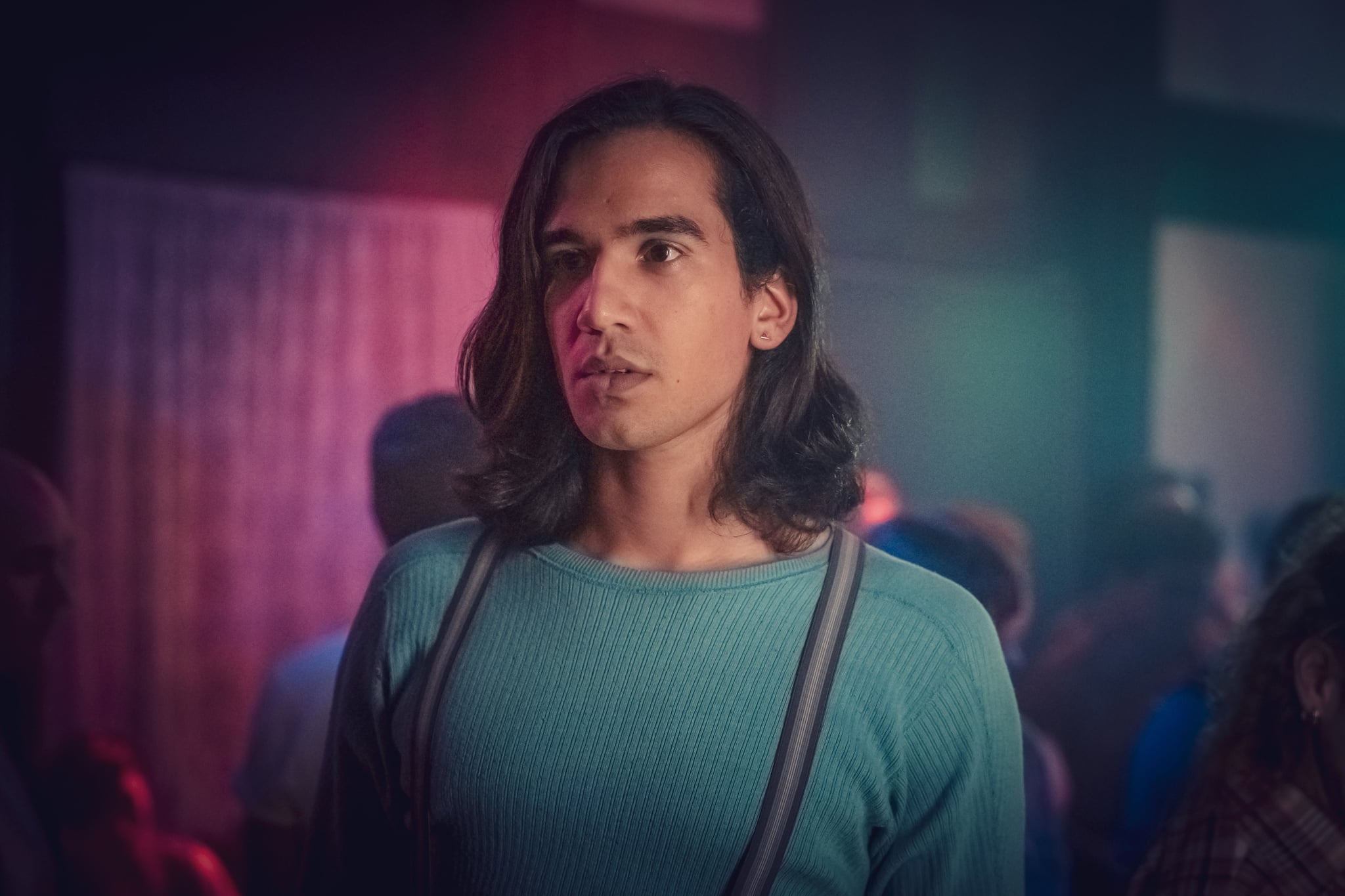
The First AIDS Protest Did Take Place in London
It's A Sin retells a powerful account of the first protest, showing Jill and Ash rallying their friends to come together in the face of the police. The series shows it taking place in 1988, however the first recorded protest in London appeared to take place one year later, organised by HIV and AIDS group ACT UP London [10]. According to charity, "prisons in the UK became a particular cause for concern among AIDS activists in the late '80s. Inmates were denied condoms and so unprotected sex was rife." As a result, the group staged a protest in 1989 outside Pentonville prison [11], urging the government to provide access to condoms in prisons. Protests continued throughout the late '80s and '90s, after section 28 was passed, and misinformation had spread.
There was a large protest held in Manchester in 1988 — a march against the government's Section 28 clause — which may have served as inspiration for this scene in the penultimate episode.
The West End Was Heavily Affected by the Virus
In the series, we see Jill singing in the chorus of Les Miserables before running across town to work the phones at a HIV information hotline. It's a small nod to the importance of the West End throughout the history of the HIV/AIDS crisis. Many actors and performers were some first to get sick, Davies explained to the Evening Standard [12]. "In this fight, as the activism began, I think what gets left out of the story is the West End. So many actors were gay, there were so many people falling ill that actually, the early start of activism was in those chorus lines."
Later on, the West End community rallied together to support those affected by the virus, both by raising money and providing people who were sick with jobs. "The lawyers are wary about naming names," Davies added in his interview with the Evening Standard, "but there were producers, West End producers and directors who were magnificent, and created jobs for people who were ill, which weren't really jobs. There was a desk at the corner, it was like — you just go and be ill, and we'll pay you a wage. They did extraordinary things."
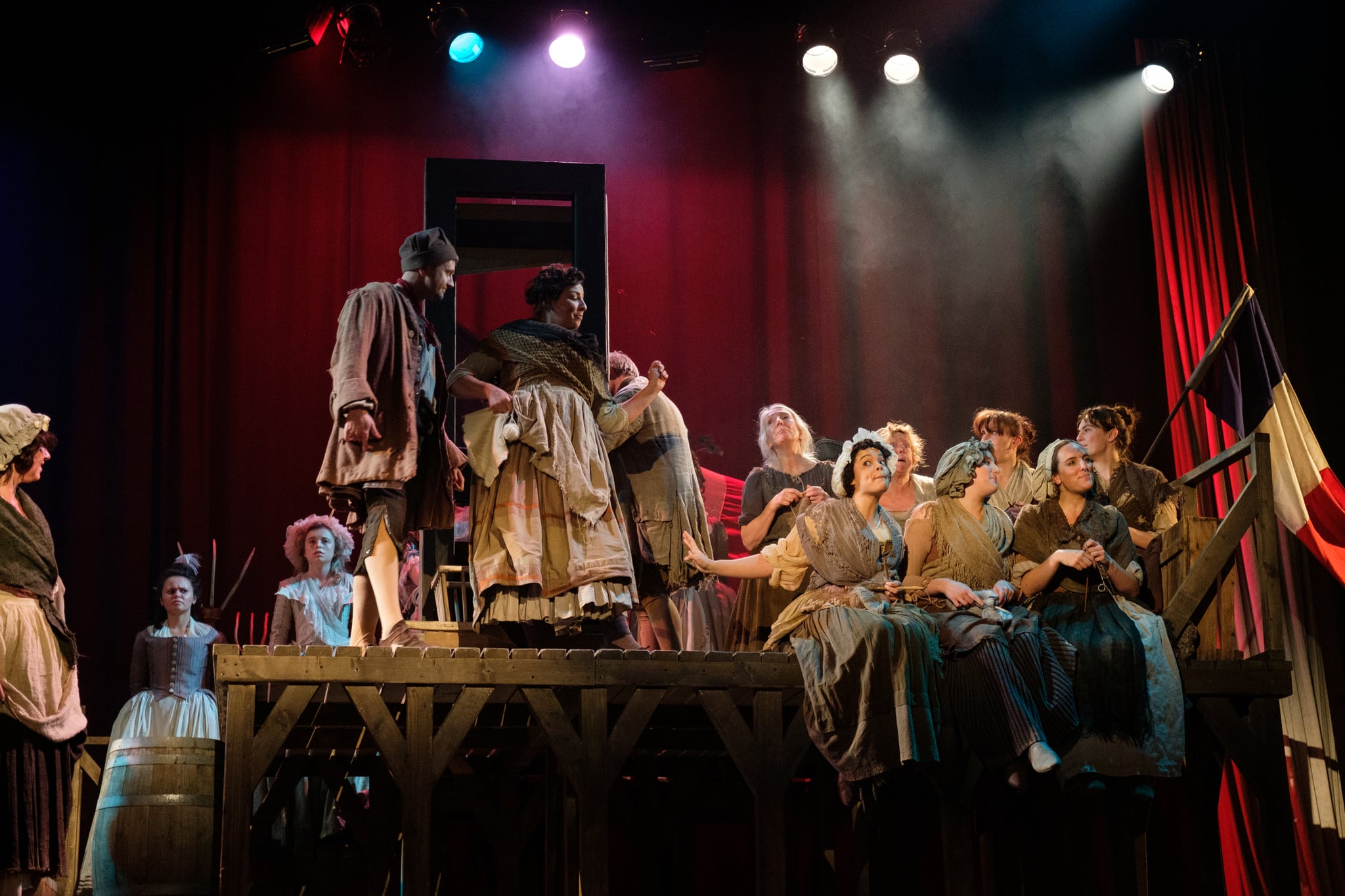
The Show Took Decades For Davies to Start
Davies admitted that the show has taken a while to reach our screens, and in his eyes, the series acts as a small part of a much larger body of work, naming films like Pride, The Normal Heart, and London Spy as its predecessors. Reflecting on his own experience, he noted that "at the time it felt like it was just a normal life to live with this killer disease, but actually it takes you 20 years to realise that it is not normal."
In the context of today's pandemic, he added "you have kids growing up now during the time of coronavirus, and to them this is normal, that face masks and social distancing is completely normal. It doesn't make them blink. And it's the same with AIDS in a way." While there are some significant differences, Davies talked about the epidemic as a time that he "just grew up with and it's taken me a while to see the enormity of it" adding that "in some ways, I do think it's there in everything I've ever written." In terms of cultural references, he noted that he didn't really have to reach for them because "the songs, and television shows, or the fashions, I lived through them all."
It's A Sin hits Channel 4 on 22 Jan.